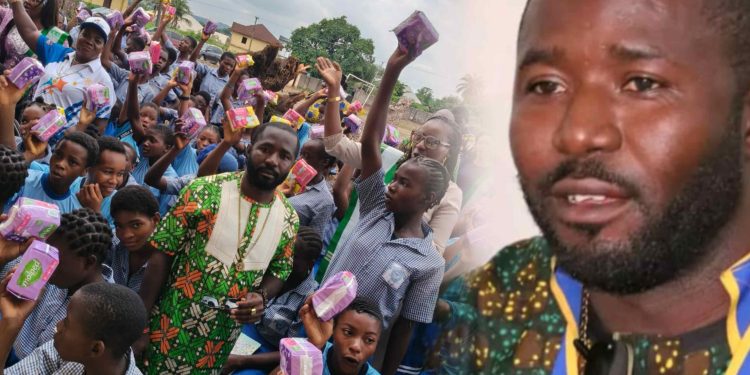The President Rotary club of Umuahia North, Rtn. Uchechukwu Udeji (Nwa Ghana) a politician and philanthropist from Ohuhu, Umuahia North in Abia state celebrates World Menstrual Hygiene Day 2025 in a grand style.
Today’s outing covered two distinct secondary schools; Williams memorial secondary school and Afugiri girls high school Ohuhu, all in Umuahia North Local Government Area.
World Menstrual Hygiene Day 2025 is observed today, May 28, under the unified theme: “Together for a #PeriodFriendlyWorld.” This global initiative emphasizes the importance of collective action to ensure that menstruation is managed with dignity, privacy, and safety for all. The focus is on eliminating stigma and taboos, and providing access to menstrual products, education, and facilities.
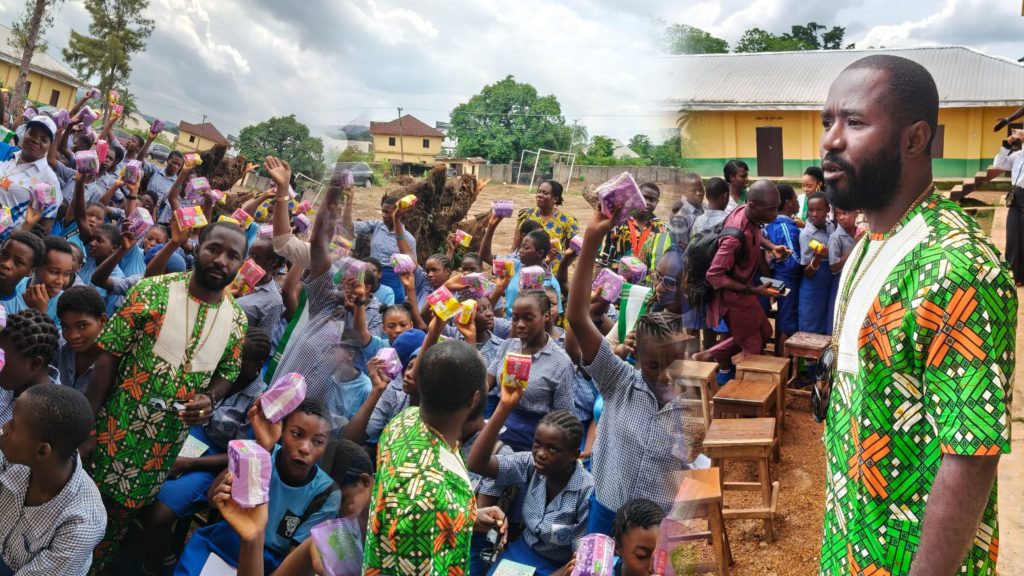
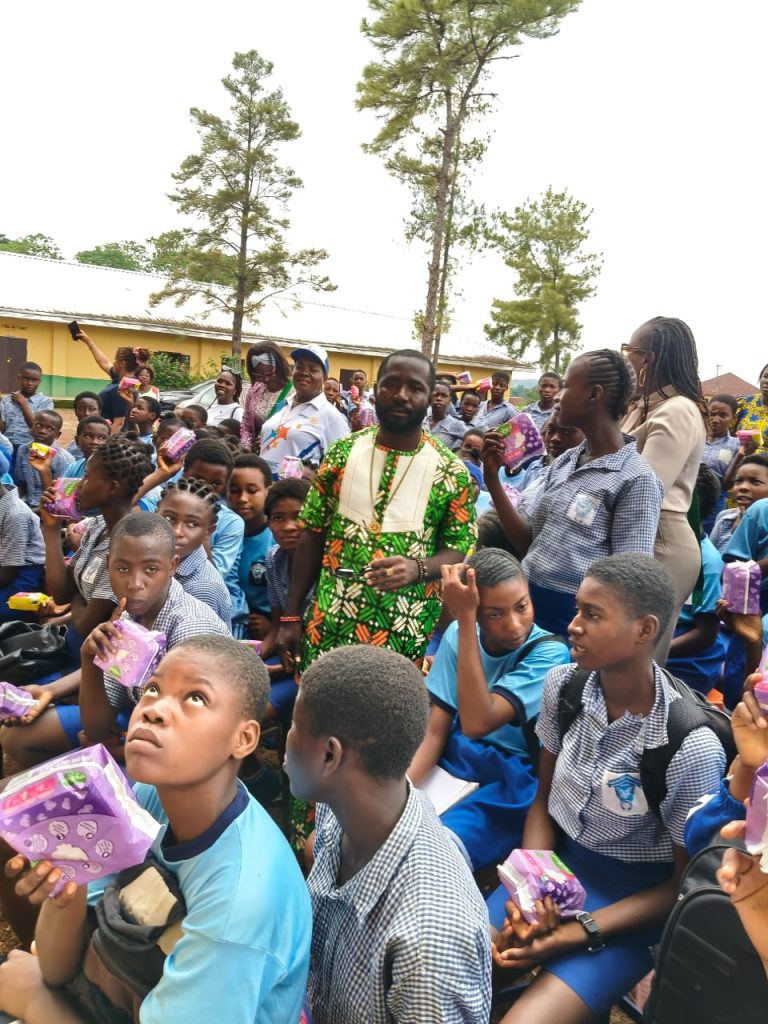
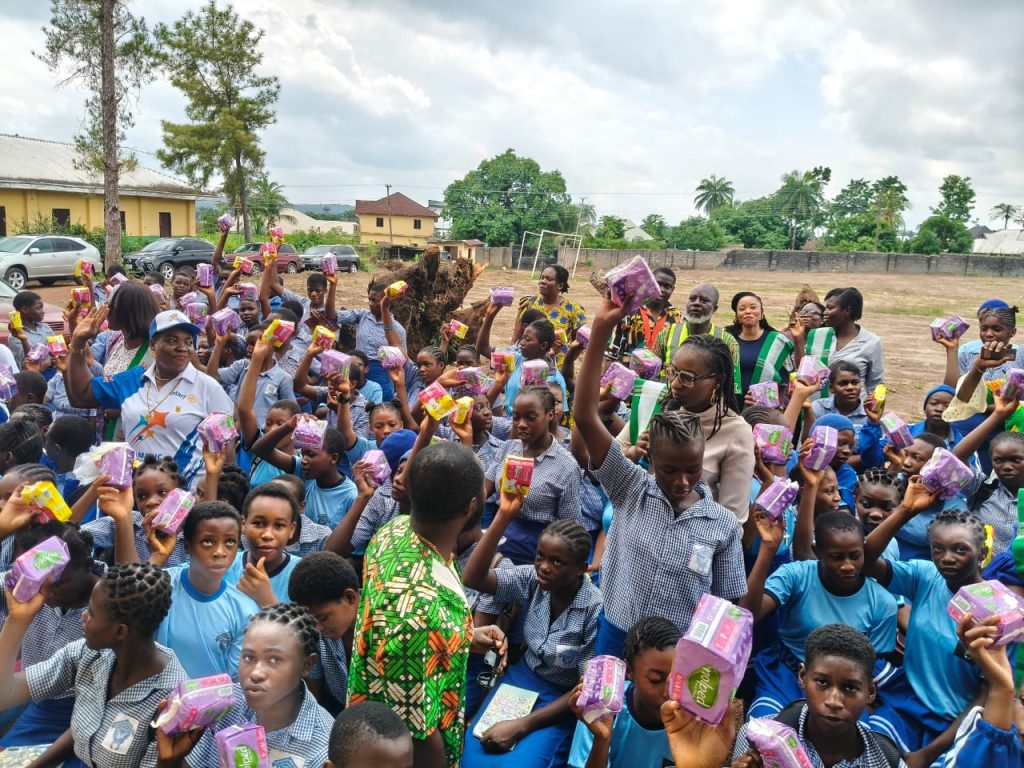
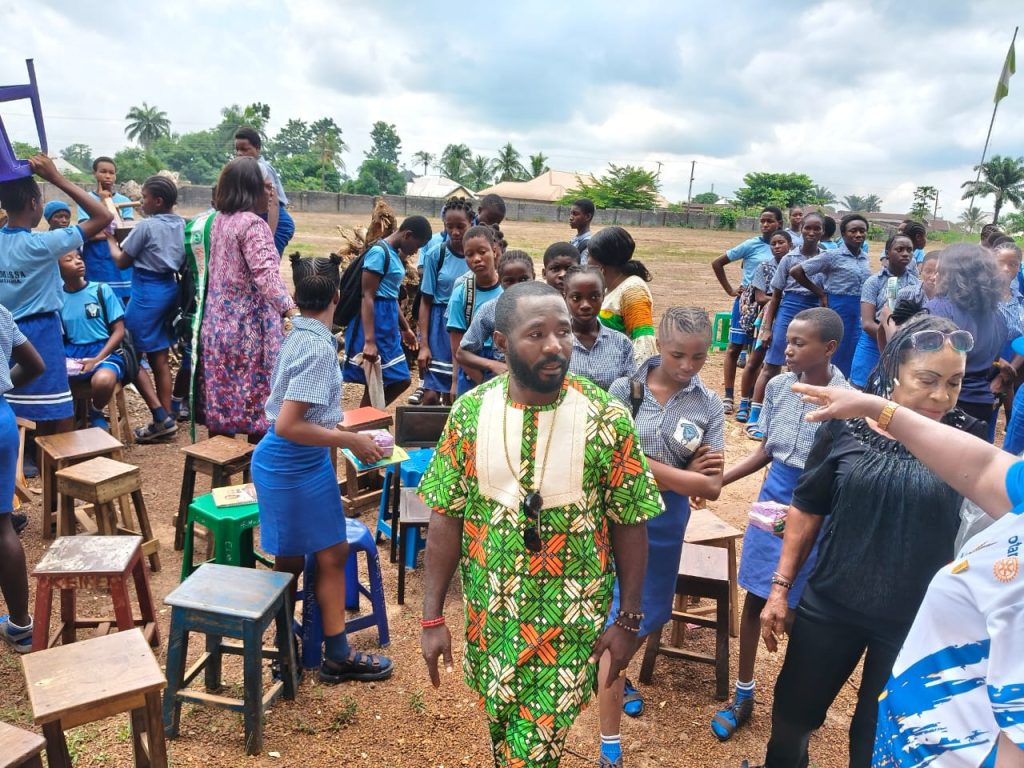
Why It Matters
Despite progress, many women and girls still face challenges such as:
Lack of access to clean water and private sanitation facilities
Inadequate or unaffordable menstrual products
Cultural taboos and misinformation
Absenteeism from school or work during menstruation
These barriers contribute to health risks, educational setbacks, and gender inequality.
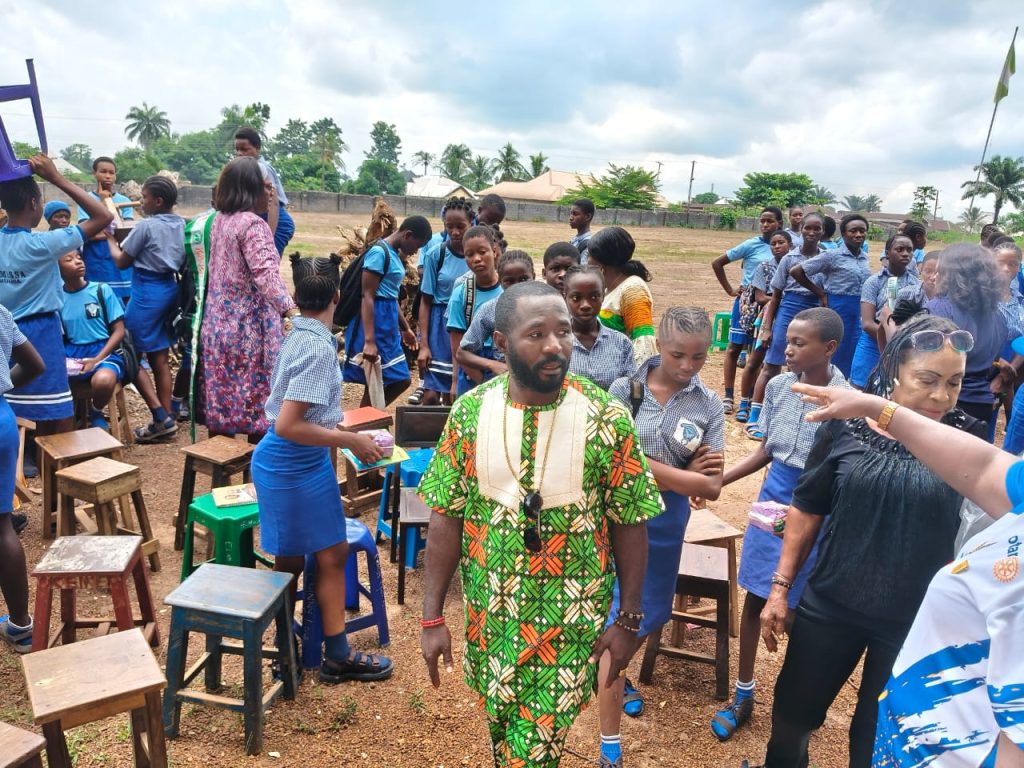
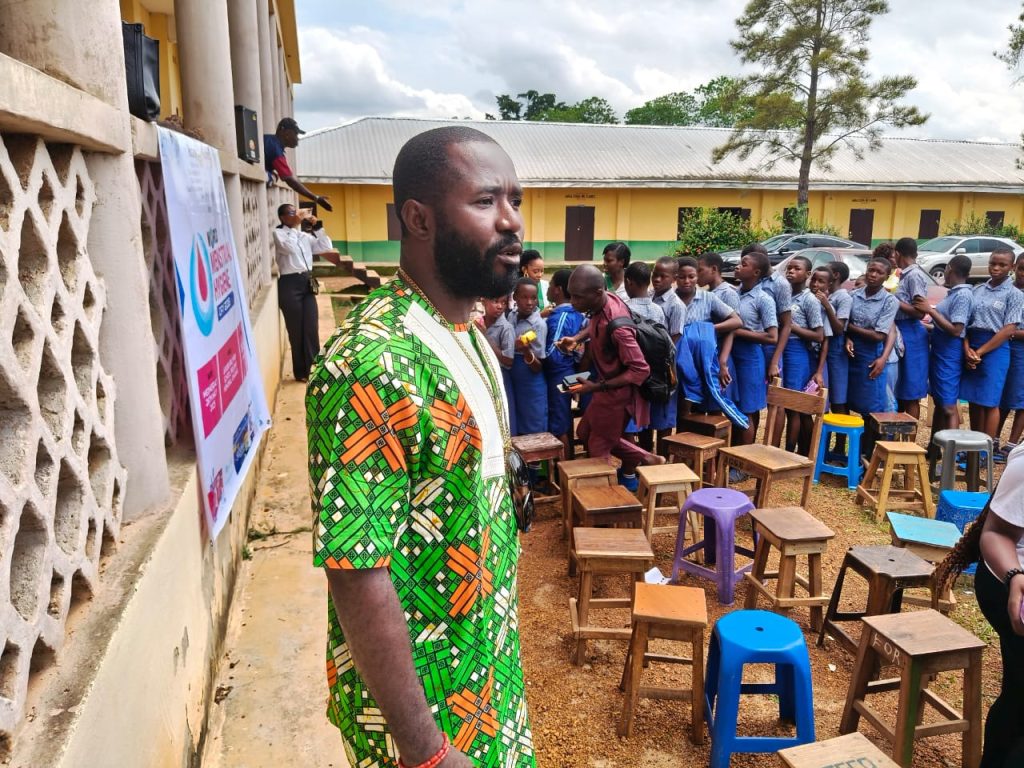
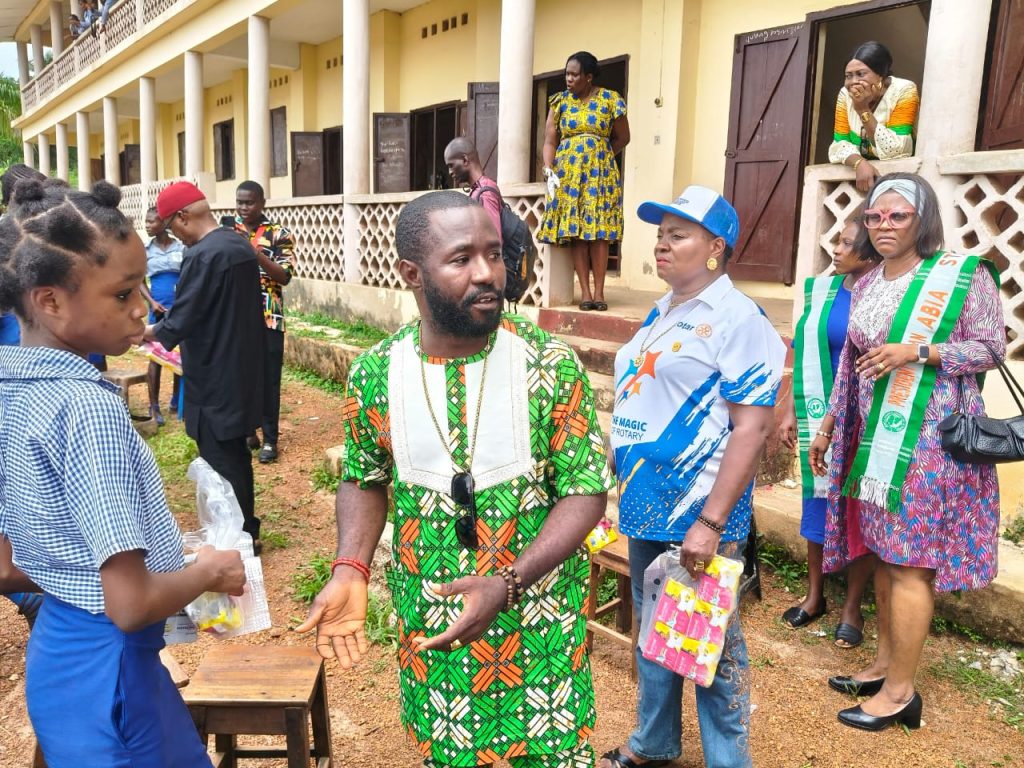
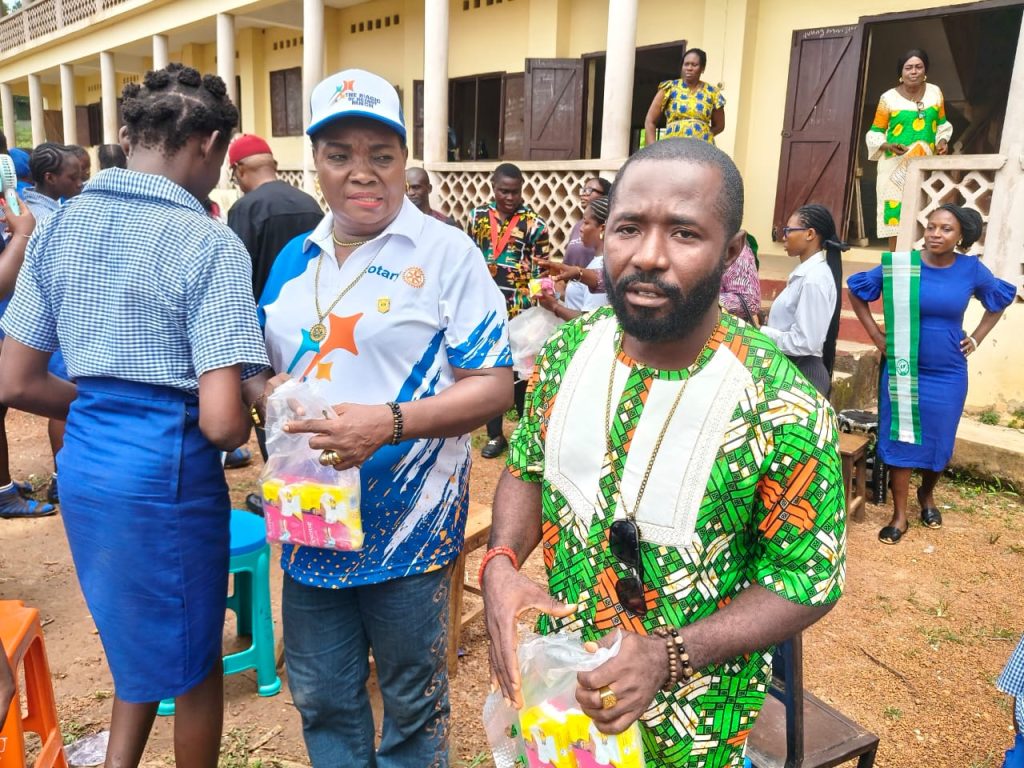
Global and Local Actions
Around the world, organizations and communities are taking action:
In Kerala, India, the government is expanding the distribution of menstrual cups to promote sustainable and affordable menstrual hygiene.
In Nigeria, WaterAid advocates for universal access to menstrual hygiene products and facilities, emphasizing the need for collective efforts to create a #PeriodFriendlyWorld.
In Malawi, ActionAid supports the production of reusable, low-cost sanitary pads, enabling girls to stay in school and women to build businesses.
In Lebanon, the Lebanese Red Cross, in partnership with the IFRC, developed inclusive and MHM-friendly latrines and bathing/laundering facilities for women living in informal tented settlements near the Syrian border.
How You Can Get Involved
Educate and Share: Use the hashtag #PeriodFriendlyWorld to spread awareness on social media.
Support Local Initiatives: Contribute to or volunteer with organizations working on menstrual hygiene.
Advocate for Policy Change: Encourage local governments to provide free or subsidized menstrual products in schools and public facilities.
Promote Sustainable Practices: Support the use of reusable menstrual products to reduce environmental impact.
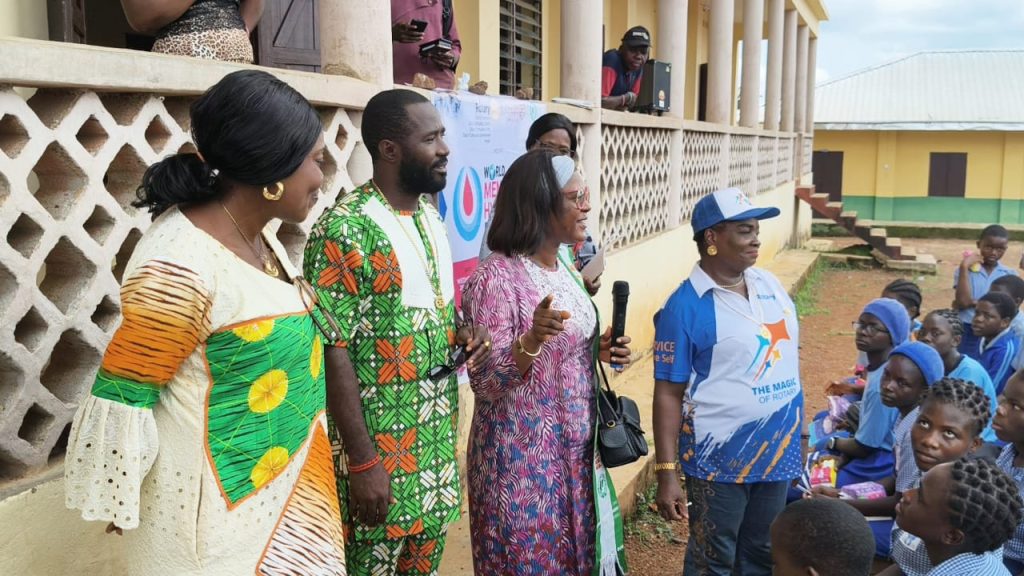
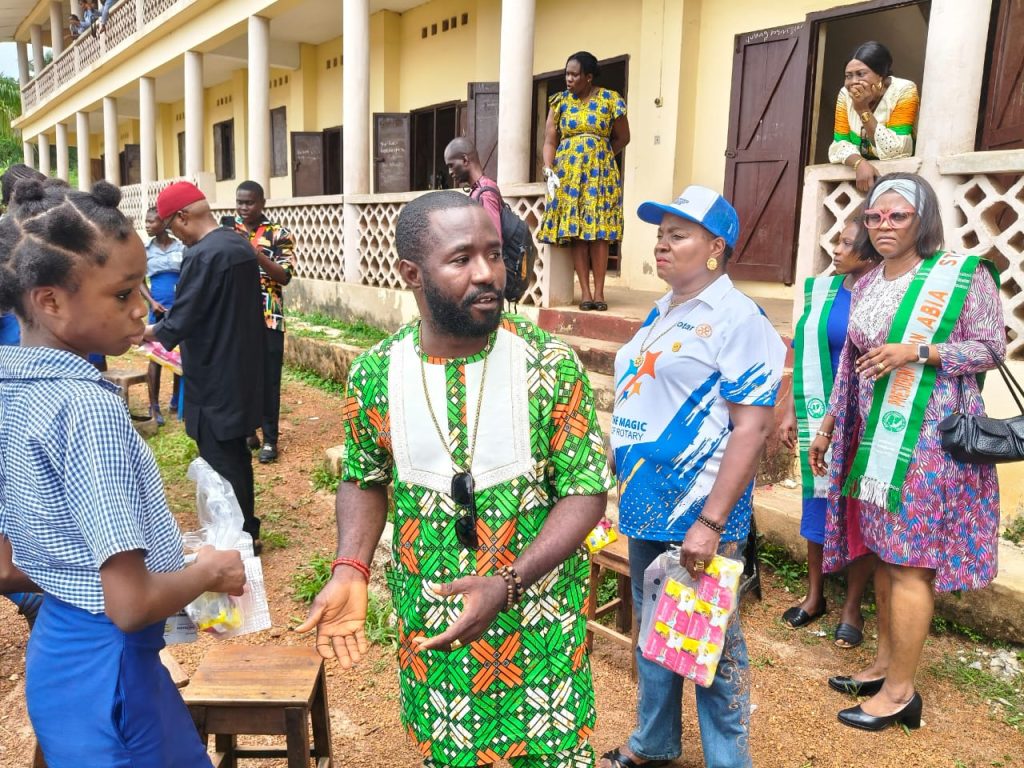
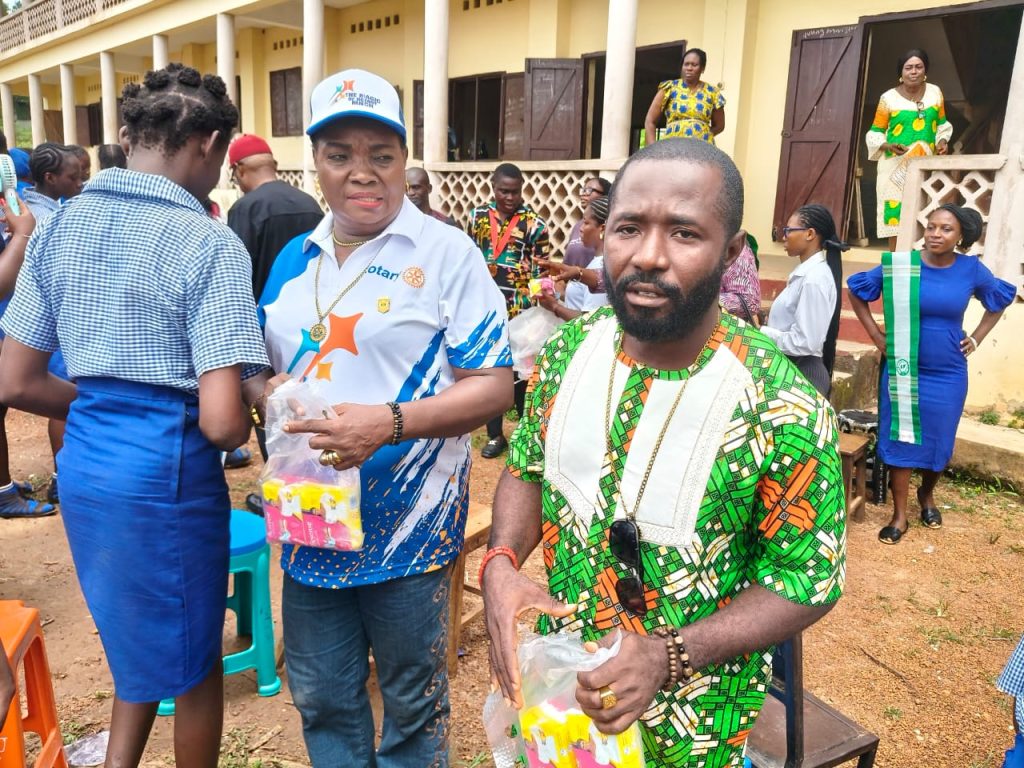
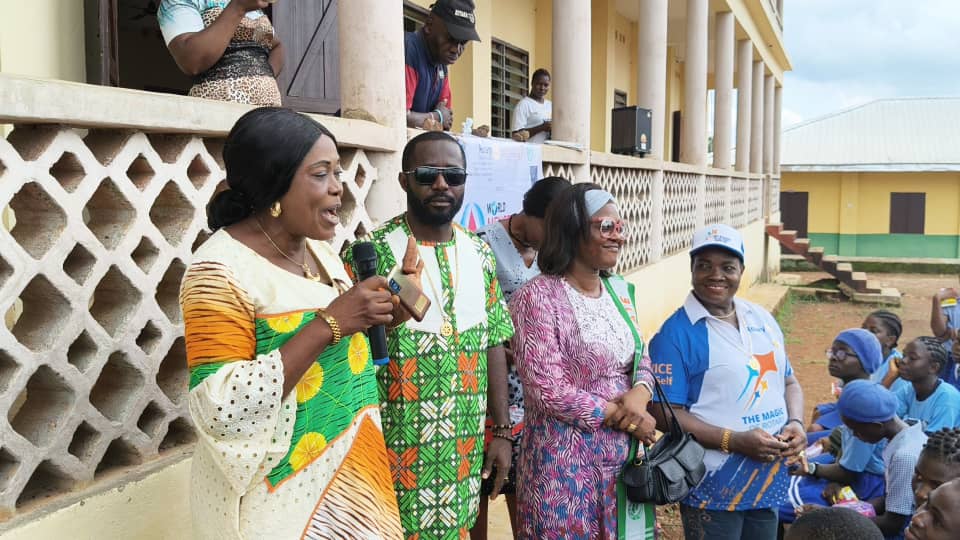
The sensitisation was graced with the presence of the President Medical Women Association Abia State, Dr Mrs Chizoba Acho gave lectures to the promising pupils with other doctors present.
With a heart filled with joy, the students appreciated the lectures and the distribution of pads given to them.
The President Rotary club Umuahia North concluded by saying
“By taking collective action, we can create a world where menstruation is no longer a barrier to health, education, or dignity.”
Chief Rtn. Uchechukwu Udeji (Nwa Ghana)
President Rotary club of Umuahia North.


